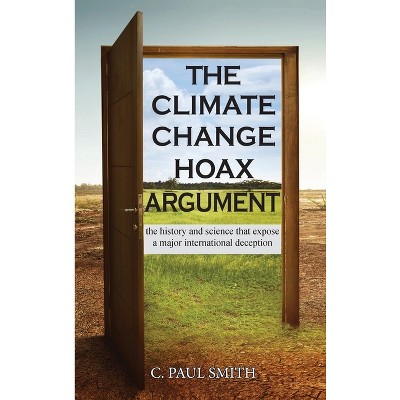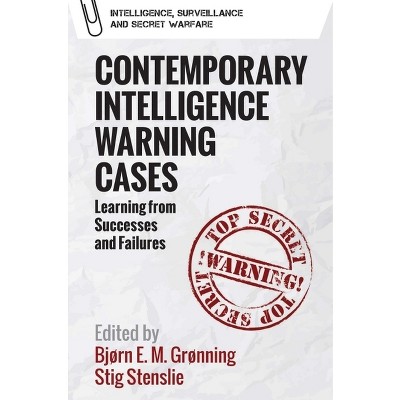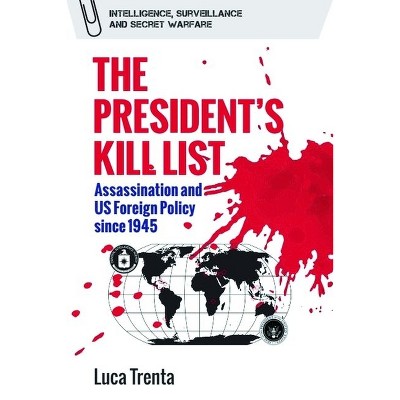Sponsored

Estimative Intelligence in European Foreign Policymaking - (Intelligence, Surveillance and Secret Warfare) (Paperback)
In Stock
Sponsored
About this item
Highlights
- This book provides the first assessment of the performance of three leading European polities in providing estimative intelligence during an era of surprise.
- About the Author: Christoph Meyer is a Professor of European and International Politics at King's College London.
- 256 Pages
- Political Science, Intelligence & Espionage
- Series Name: Intelligence, Surveillance and Secret Warfare
Description
About the Book
The first comparative study of estimative intelligence and strategic surprise in a European context, complementing and testing insights from previous studies centred on the United States
Book Synopsis
This book provides the first assessment of the performance of three leading European polities in providing estimative intelligence during an era of surprise. It develops a new framework for conducting postmortems guided by a normative model of anticipatory foreign policy. The comparative analysis focuses on how the UK, the EU and Germany handled three cases of major surprises: the Arab uprisings, the rise to power of the Islamic State (ISIS), and the Russian annexation of Crimea. It considers not just government intelligence assessments, but also diplomatic reporting and expert open sources and how these assessments were received by organisational leaders. The book tests and develops new theories about the causes of strategic surprises, going beyond a common focus on intelligence versus policy failures to identify challenges and factors that cut across both communities. With the help of former senior officials, the book identifies lessons yet to be learnt by European polities to better anticipate and prepare for future surprises.
From the Back Cover
Assesses estimative intelligence and warnings as an integral part of foreign policy across three major contemporary cases of surprise This book develops a new framework for conducting postmortems guided by a normative model of anticipatory foreign policy. It is the first assessment of the performance of three leading European polities in providing estimative intelligence during an era of surprise. The comparative analysis focuses on how the UK, the EU and Germany handled three cases of major surprises: the Arab uprisings, the rise to power of the Islamic State (ISIS), and the Russian annexation of Crimea. It considers government intelligence assessments, diplomatic reporting and expert open sources, and how organisational leaders received these assessments. The book tests and develops new theories about the causes of strategic surprises, going beyond a common focus on intelligence versus policy failures to identify challenges and factors that cut across analyst and decision-maker communities. Drawing on insights and chapters provided by former senior officials, the book identifies lessons to learn from European polities to better anticipate and prepare for future surprises. Christoph Meyer is Professor of European and International Politics at King's College London. Eva Michaels is Beatriu de Pinós Fellow at the Barcelona Institute of International Studies. Nikki Ikani is Assistant Professor in Intelligence and Security at the Institute of Security and Global Affairs, Leiden University. Aviva Guttmann is Lecturer in Strategy and Intelligence at Aberystwyth University. Michael S. Goodman is Professor of Intelligence and International Affairs and Head of the Department of War Studies at King's College London.Review Quotes
Estimative Intelligence in European Foreign Policymaking is a welcome addition to the intelligence literature, and one that moves beyond state-on-state conflict to provide wider examples of regime change, internal stability, and hybrid threats.
--Dan Lomas "Diplomacy & Statecraft"In conclusion, Estimative Intelligence in European Foreign Policy is an empirical, theoretical and conceptual pillar for the discipline, in the European context and beyond. Rooted in the highest academic rigour and in methodologically sound research, this book is a fundamental read for scholars, practitioners, and decisionmakers of anticipatory foreign policy.
--Lucia Frigo, University of London "Journal of Intelligence History"This book provides a holistic approach toward estimative intelligence and anticipatory foreign policy--another excellent contribution to the literature on intelligence.
--Sebastiaan Rietjens "International Journal of Intelligence and CounterIntelligence"This book, alongside the extensive research that underpins it, offers an array of noteworthy contributions that deserve attention. [...] In summary, Estimative Intelligence in European Foreign Policy provides a balanced and multifaceted perspective, making it a valuable resource for scholars, practitioners, and researchers interested in the intricate world of intelligence and its interplay with foreign policy.
--Antonio M. Díaz-Fernández, University of Cádiz "Intelligence and National Security"This volume makes a unique empirical contribution to a less trodden yet increasingly critical subject of estimative intelligence in the European context. The contributors go beyond low hanging fruit of issues like cognitive bias to diagnose a broader complex suite of cultural, institutional, and professional factors at the heart of estimative intelligence failure. A must read for scholars, practitioners and policy makers interested in managing strategic surprise.
--Patrick F Walsh, Charles Sturt UniversityAbout the Author
Christoph Meyer is a Professor of European and International Politics at King's College London. He authored with De Franco and Otto Warning about War: Conflict, Persuasion and Foreign Policy (Cambridge University Press, 2020), which won the 2021 ISA best book award.
Eva Michaels is a Beatriu de Pinós Fellow at the Institut Barcelona d'Estudis Internacionals. Her research has been published in the Journal of Common Market Studies, Media, War & Conflict and Intelligence and National Security.
Nikki Ikani is Assistant Professor in Intelligence and Security at the Institute of Security and Global Affairs, Leiden University. She has published in the field intelligence, International Relations and European foreign policy and is the author of Crisis and Change in European Foreign Policy (Manchester University Press, 2021).
Aviva Guttmann is a Lecturer in Strategy and Intelligence at Aberystwyth University. She is the author of The Origins of International Counterterrorism (Brill, 2018) and contributed several articles to refereed academic journals of history, intelligence, strategy, and security
Michael S. Goodman is Professor of Intelligence and International Affairs in the Department of War Studies, King's College London and Visiting Professor at the Norwegian Defence Intelligence School. He has published widely in the field of intelligence history, including most recently The Official History of the Joint Intelligence Committee, Volume I: From the Approach of the Second World War to the Suez Crisis (Routledge, 2015), which was chosen as one of The Spectator's books of the year. He is series editor for Intelligence and Security for Hurst/Columbia University Press; and for Intelligence, Surveillance and Secret Warfare for Edinburgh University Press; and is a member of the editorial boards for five journals. He is currently on secondment to the Cabinet Office where he is the Official Historian of the Joint Intelligence Committee.

















